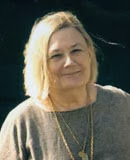About Me

- Anita Burgh
- I am a writer - late developer since I wasn't published until I was 50. I have now written 23 novels, numerous short stories and articles.
Followers
Blog Archive
My Blog List
Powered by Blogger.
Slideshow
Sunday, 6 September 2009
Mary Jon, one of the group I mentor, asked: “I remember you warning not to get caught up in research . . . Because your novels are all so diverse, do you have a system? Limits you set?”
There’s nothing worse than a book with creaking research. By that I mean:
Incorrect. Nothing enrages a reader more than a fact which is wrong. It destroys your integrity – that bond which you have with your reader.
Laboured. This comes from including all you know. Then the writing becomes turgid and boring.
Obvious So many facts not interwoven but simply written down that there is a risk of appearing a know all and another cause to annoy the reader.
Dangers. The first one is the problem of too much research being used. This comes from not wanting to waste any of it when you worked so hard to find it in the first place. Though there are those who need to show off how much they know.
The second is that research can become seductive to the point where it becomes more important than the book, to the extent that the book never gets written.
What do I do? And please remember this is not a recommendation but simply my method.
For me, immersion is the key.
I read around the subject, biographies, social history, geography, look at paintings, fashion plates, photographs, watch films and listen to the music of the time I’m working on. Lastly I Google like mad. I familiarise myself with the time, the place, the people. I soak up the environment.
I think the crucial point is I make no notes; it is amazing how much you remember, the masses you have absorbed. If I made them I fear I would want to use them, especially a delicious original fact but one that is not relevant – I would weaken, I’m sure I would.
Then I begin the book relying on this information and at the end, any facts I have stated, descriptions, clothes habits et al, I check they are correct. This way, I hope, the research I have done sits easily in the pages and yet there is a veracity to it.
It’s very much an iceberg situation two thirds of what I’ve learnt I don’t use.
Obviously if it is an historical novel and a fact is used, such as a war, or an act of parliament then I check that out there and then for, make a mistake, and the whole novel could be out of kilter.
If you are writing a modern novel then don’t get lulled into the idea of because you’ve lived through it there will be no need for research. There will be, we can make mistakes about yesterday just as easily.
And then there are the strange things that happen. I was writing a book called Avarice my characters went to Oregon – not something I intended, and a place I’d never been. I wrote of a lake with water as blue as the sky. The book finished I checked out Oregon where there are lakes of such blue . . . etc. Mundanely caused by a chemical reaction. Now where did that little piece of information come from? It must have been a picture I’d seen and forgotten, but my brain hadn’t.
Subscribe to:
Post Comments
(Atom)






I love how the mind does remember things...
ReplyDeleteI tend to do most of my key research afterwards or in the case of Penderown I am using some of the garden research I had done for August Rock but never used....
Excellent post again :-)
lx
This is very useful. I'm stuck
ReplyDeletemoving forward, and it occurred to me today that I don't have the time, place, etc.... firmly in my
head. For me, the suggestions you've made will work quite well.
Never considered trying to do this all up front. Love the suggestion
to take no notes!
I love that recommendation to let it all soak in but take no notes. I do take notes, but as I mostly can't read my own writing afterwards, it amounts to pretty much the same thing!
ReplyDelete